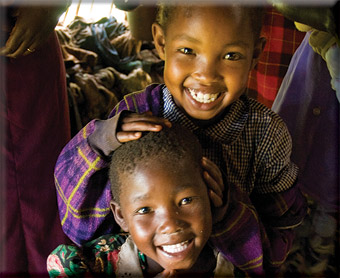The post-election violence from Kenya’s December 2007 election is still haunting the country, with high-level suspects named yesterday by the International Criminal Court (ICC) prosecutor.
Three prominent members of the Orange Democratic Movement (ODM) have been accused planning violence as early as a year before the election, and three Party of National Unity (PNU) and/or members of the government are accused of plotting response attacks on ODM supporters through excessive police force and stoking retaliation.
That high-level politicians and businesspeople encouraged the violence that took more than 1,000 lives and displaced hundreds of thousands is not news. Many told me this on my trip there with Cross International Catholic Outreach in 2008, and it was confirmed in the official reports. In the article I wrote about Kenya, I wrote how those reports and the Catholic Church asked that the international community hold the Kenyan government accountable.
But now that real names have finally been made public, two years shy of another presidential election, Kenyan officials aren’t so sure they want the outside interference, with one PM claiming that the ICC prosecutor Luis Moreno Ocampo “is more political than a Kenyan politician.”
Ocampo’s announcement was perhaps a blow to Kenya’s sense of pride and came in the wake of Wikileak revelations that the U.S. government was critical of Kenyan leadership. Kenya and many other countries has said that Wikileaks threatens their national sovereignty. A history of colonialism does not help the ICC either. “We’ve heard our problems, but why we fought for independence, is because our forefathers believed that we have the capacity to solve our own problems,” another PM said in debating whether the country should opt out of the Rome Statute, the treaty establishing the ICC.
Those arguing for cooperating with the ICC say that those innocent don’t have anything to worry about (some suspects have said they are willing to cooperate), and that a special tribunal held within Kenya could not be trusted.
While I wouldn’t presume to know what’s the best way for the country to proceed based on my week stay in Kenya and some research from afar, what strikes me is that this new development only further supports the conclusion I came to in writing “Kenya rising”: that the church’s work in Kenya and other young, developing democracies is crucial to those countries’ success.
With politicians who seem willing to fight to stay in power, Kenyans must be able to make informed decisions and to see past mere rhetoric. Education, which the church provides to many in Kenya, is key not only for developing the country’s next leaders, but for developing intelligent, critical, and active voters.
According to Fides, which reports news from the missionary agency of the church, church leaders feared violence following the release of the names. The quality education, along with the spiritual development, of the church, however, will help the country turn to words rather than weapons to solve their problems.









